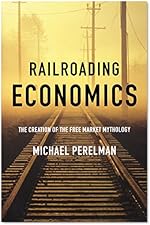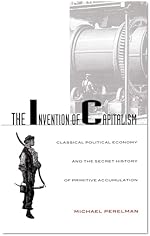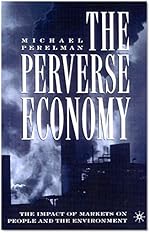On the Death of Milton Friedman
Milton Friedman died today. I never met him personally. The closest I got was overhearing his private conversation at the Western Economic Meetings in 1986. He was gloating that the end of communism would create a massive labor surplus that was sure to bring down wages in the West. He was particularly excited about the effect of China.
Central to Friedman’s thinking was that concepts like fairness — at least a traditional idea of fairness — had no place in economics. What the market produced was by definition fair. Corporations aiming toward profit maximization alone were sure to bring about the best possible outcome.
I just happen to be reading last Friday’s Wall Street Journal science column by Sharon Begley dealing with a sense of fairness in other primates. The article got me to thinking about the arrogance of economics, seeing its ideological mission to create a Friedman-like view of the world. Is economics engaged in some sort of reverse Darwinianism, hell-bent on making the human race into the lowest form of primate?
Anyway, here’s a short extract from the article.
Begley, Sharon. 2006. “Animals Seem to Have an Inherent Sense of Fairness and Justice.” Wall Street Journal (10 November): p. B 1.
“Even when little or no effort is required, chimps and capuchins balk at unfair situations, says anthropologist Sarah Brosnan of Emory University. In a series of experiments, the animals learned to trade a “token” (a rock or plastic pipe) with a trainer for food. If they saw a cagemate trade for a delectable grape, but were offered a cucumber in exchange for their own token, they were much more likely to refuse to hand it over for the stupid vegetable. Better to go hungry than to give in to this unfairness.”
“A sense of fairness underlies irrational choices by humans, too. Economists assume that economic decisions are rational, but in many cases people prefer to gain less in order to punish someone who is behaving unfairly. If a partner proposes a $7/$3 split of $10 offered in an experiment, many people reject it outright, gaining nothing rather than accepting the inequity. “People are willing to give up their own potential gain to block someone else from unfairly getting more than themselves,” says Ms. Brosnan, who points to resistance to globalization and free trade as current examples.”

 25 – The Confiscation of American Prosperity: From Right-Wing Extremism and Economic Ideology to the Next Great Depression
25 – The Confiscation of American Prosperity: From Right-Wing Extremism and Economic Ideology to the Next Great Depression 30 – Manufacturing Discontent: The Trap of Individualism in Corporate Society
30 – Manufacturing Discontent: The Trap of Individualism in Corporate Society Class Warfare in the Information Age
Class Warfare in the Information Age Railroading Economics: The Creation of the Free Market Mythology
Railroading Economics: The Creation of the Free Market Mythology Steal This Idea: Intellectual Property Rights and the Corporate Confiscation of Creativity
Steal This Idea: Intellectual Property Rights and the Corporate Confiscation of Creativity The Invention of Capitalism: Classical Political Economy and the Secret History of Primitive Accumulation
The Invention of Capitalism: Classical Political Economy and the Secret History of Primitive Accumulation The Perverse Economy: The Impact of Markets on People and the Environment
The Perverse Economy: The Impact of Markets on People and the Environment
Recently, for my own education (or edification?) I was reading through a college text on (neoliberal) economics and I came across this startling little paragraph in the prologue. It would be nice to hear an *actual economist* such as yourself expound.
Under the market mechanism people must be prepared to trade off growth and equality; that is, to accept inequality as a mechanism for stimulating growth. In developed countries, during the long postwar boom, most people were satisfied with this arrangement. As a result, there were few complaints about disparities in income and employment opportunities. In underdeveloped countries, the benefits of economic expansion never reached the masses. Glaring inequality between the rich and the poor and between developed and underdeveloped countries is not conducive to world peace and stability.
The text then proceeds for about 400 pages, apparently under the assumption that this is of no real concern.
Social Darwinism has been a favourite ideological trope for reactionaries and some early socialists alike. Haeckel’s social Darwinism influenced both Jack London and Adolf Hitler. Mostly, I liked Jack, but even he was able to realize that he made an error vis a vis leaving the SLP and joining the SP (see his letter of resignation from the Socialist Party). Haeckel thought social Darwinism was politically scientific enough to form the “Monist League”. Maybe now, with historical hindsight in hand, he could be excused for such folly. Even Hegel had problems with bad science e.g. phrenology. But these days, this pseudo-science has invaded the popular consciousness via various legitimzed outlets. It has apparently also become part and parcel of the “philosophy” of many modern economists, business leaders and politicians and there’s no excuse for it. It’s pure opportunism of the vilest kind.